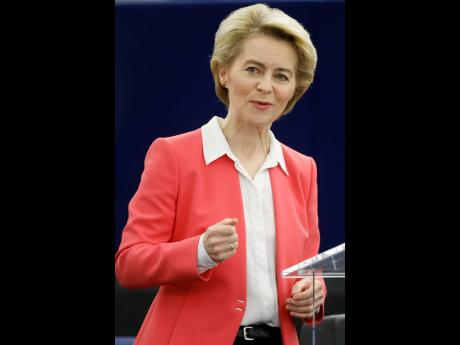Elizabeth Morgan | EU, ACP, Brexit: Twelve eventful days in December
When this article is published, the new European Union (EU) Commission will be in office as of December 1; the Summit of Heads of State and Government of the African, Caribbean and Pacific (ACP) Group of States will have concluded on December 10; and the British will be going to the polls on Thursday, December 12 in their first wintry and most consequential general election in decades. Developments in these 12 eventful December days all impact ACP/EU relations.
THE NEW EU COMMISSION
The new EU Commission (2019-2024) is in office after a one-month delay, when replacement nominees had to be found and the college approved by the Parliament. The new EU team members with which the ACP now has to primarily engage include: Ursula von der Leyen, president; Josef Borrell, high representative for foreign affairs and security policy and a vice-president; Jutta Urpilainen, commissioner for International Partnerships (formerly International Cooperation and Development); and Phil Hogan, trade commissioner.
President von der Leyen has indicated that this commission will execute a geopolitical strategy and will be eurocentric in its focus. She has said that the commission will accompany change in Europe and will be the champion of Europeans.
The EU is touting a “partnership of equals” in its relationship with the ACP. There is some questioning of this concept, and in Africa, though supporting the idea, some are acknowledging and warning that Africa’s relations with the EU are not on equal terms.
President von der Leyen, for her first overseas visit, went to Ethiopia, seat of the African Union (AU), December 6-8, to send a strong political signal and call for unity. Among the ACP regions, the Africa strategy takes priority. Reconciling the AU and ACP relationship seems to be a challenge for both the EU and Africa.
In forging a partnership with the ACP 79, including Africa, the post-Cotonou agreement is important and Jutta Urpilainen becomes the EU lead negotiator and should be aiming for an early meeting with the ACP lead, Robert Dussey, to assess progress. On trade and investment, the ACP, particularly the Caribbean Forum (CARIFORUM) ministers, should be seeking an early meeting with Phil Hogan, especially with the five-year review of the Economic Partnership Agreement (EPA) in progress.
ACP SUMMIT
As host of the ACP Summit, December 9-10, Kenya’s President Uhuru Kenyatta, in the inter-sessional period, will be part of a coordinating bureau including Papua New Guinea, past host in 2016. He should be holding this position when the post-Cotonou agreement is concluded and signed. I would expect Mrs von der Leyen to not only meet with the AU but also with the presiding ACP Bureau. Hopefully, the AU/ACP relationship will be clarified to the satisfaction of all.
The ACP wants to emerge from this 9th summit a reformed, more international organisation from decisions taken to further revise the Georgetown Agreement. Policy guidance on the post-Cotonou negotiations is also expected.
It is fortunate that in terms of representation at the summit, the Georgetown Agreement speaks to “Heads of State or Government of ACP States or their designated representatives”. Referring to assumptions in my article last week, at the Heads level, CARIFORUM was represented by the prime ministers of Barbados and Jamaica.
I note that the ACP secretary general-designate is Ambassador Georges Chikoti, a former foreign minister of Angola. He assumes office in March 2020.
On Caribbean/Africa relations, I see an interesting development, as a CARICOM diplomatic office is opening in Nairobi.
BREXIT – BRITISH ELECTIONS
Britain is now scheduled to withdraw from EU membership on January 31, 2020. Campaigning will be winding up as Britons head to the polls tomorrow. Whatever the results, it will have implications for Brexit, leave, remain or new referendum.
I suspect Commonwealth ACP countries are following these elections closely. Recall that 40 developing countries came into the ACP/EU relationship through Britain’s membership.
So I wait to see the messages coming from the new EU Commission; the outcome of the ACP Summit; and the results of the UK elections.
Elizabeth Morgan is a specialist in international trade policy and international politics. Email feedback to columns@gleanerjm.com

